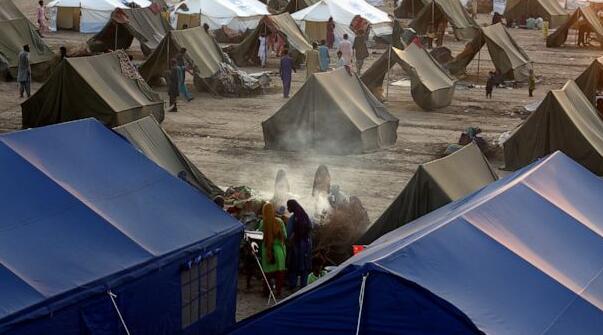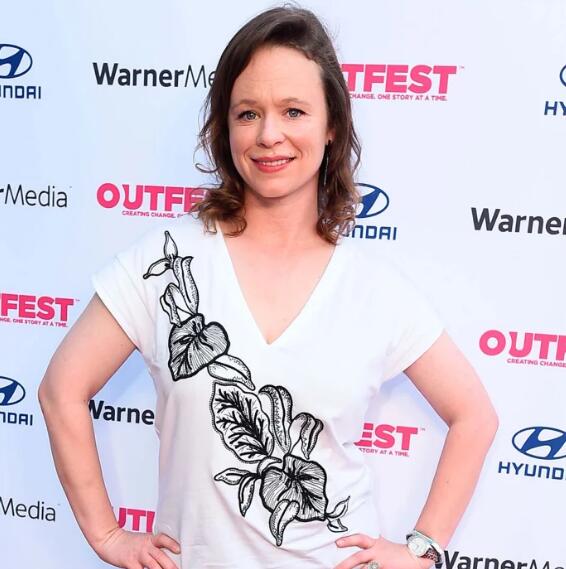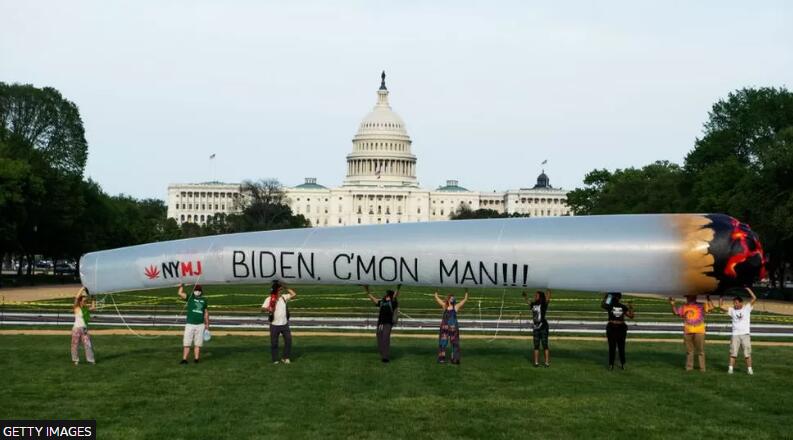Prime Minister Sir Keir Starmer has held talks with Volodymyr Zelensky in Downing Street, as the Ukrainian president seeks to shore up European support for his country’s war effort.
Zelensky said he would share details of his “victory plan” during the meeting, while Sir Keir pledged his “continued commitment and support” for Ukraine.
The meeting comes as the conflict with Russia heads into its third winter and amid the prospect of Donald Trump, who is widely considered to be less supportive of Ukraine, winning the US presidential election in November.
Mark Rutte, the new head of the Nato military alliance, also attended Downing Street to take part in the talks with Zelensky.
The Nato chief held a one-to-one meeting with the prime minister, while Zelensky will is expected to travel to France and Italy to continue his European diplomatic tour.
A red carpet was laid out in Downing Street for Zelensky’s arrival and the two leaders shook hands and embraced on the steps of No 10.
Speaking in No 10, the Ukrainian president said: “Thanks to the UK people, the people of your great country, for your [strength in us] from the very beginning of the war.”
Zelensky said he would share details of Ukraine’s so-called victory plan, a strategy for the next phase of the war. The president has been seeking to garner renewed support for his war efforts in recent weeks.
Details of that plan have not yet been made public, but it relies on increased Western support and security guarantees. That includes setting out a clear path towards Ukraine’s membership in Nato and lifting restrictions on the use of Western supplied long range weapons.
Sir Keir said it was “very important we’re able to show our continued commitment to support Ukraine” and it was a chance to “go through the plan, to talk in more detail”.
“This is such an important fight for you and for us as well,” the prime minister said.
The head of the British armed forces, the defence secretary and the prime minister’s senior national security adviser also attended talks with Zelensky and his team, which lasted for around two hours.
Rutte told BBC News after the meeting that “it’s crucial for Ukraine to prevail,” adding the situation “is not only a problem for the Ukraine, but also a threat to all of us”.
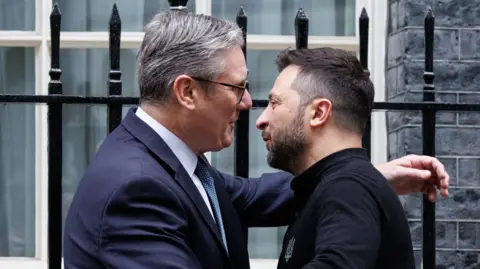 EPA
EPAAn agenda for the Downing Street talks has not been made public, but Rutte said the parties discussed the use of British-supplied missiles on Russian territory.
Zelensky has repeatedly pressed allies for his forces to be allowed to target Russian military logistic targets deep inside Russia using Storm Shadow missiles but has so far been frustrated in his efforts. The US also needs to give permission for the missiles to be used inside Russia.
Rutte, when asked whether he would support such use, said that legally, Ukraine is allowed to use its weapons if they can hit targets in Russia that present a threat to Ukraine, but the decision was not up to him.
“That is up to the individual allies to decide how weapons they deliver into Ukraine can be used,” he said.
There is support in Whitehall for lifting the restrictions on the use of the Storm Shadow missiles but the government does not want to go it alone.
The US has yet to give the green light and Germany is also opposed.
Russian President Vladimir Putin has made it clear he would consider the move an escalation and there is concern among Nato countries about risking a Kremlin response.
Ukraine had hoped a planned summit later this week in Ramstein, Germany, which was set to bring the country’s biggest military backers together, would yield movement on the use of long-range missiles.
But that summit has been delayed because US President Joe Biden is unable to attend while he oversees the emergency response to Hurricane Milton, which has caused widespread damage in Florida.
Russia has made modest but strategically important gains on the battlefield in recent weeks, though a decisive breakthrough from either side remains elusive.
Zelensky is keenly aware that US support for Ukraine may cool if Trump returns to the White House, which would leave Ukraine more dependent on European allies like the UK.
That could test the West’s stamina as the third anniversary of the full-scale invasion approaches, with growing questions around war fatigue and the West’s long-term support.
Rutte, when asked his concerns about a potential Trump presidency, told the BBC that the former president is “fully aware of the fact that for the US to stay safe, that Nato membership… is crucial”.
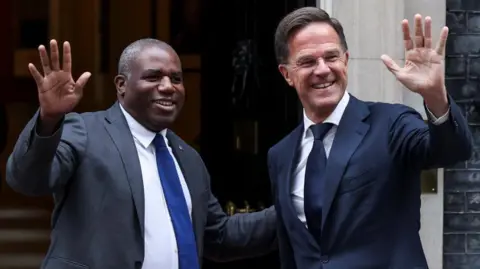 Reuters
ReutersThe UK has contributed £12.8bn to Ukraine in military and other aid since Russia launched its full-scale invasion in February 2022, and more than 200,000 Ukrainian refugees have temporarily settled in the UK.
Since taking office, the prime minister has continued the policy of the previous Conservative government in offering strong financial and diplomatic support for Ukraine’s war effort.
It is the second time Zelensky has visited Downing Street since Sir Keir was elected prime minister. In July, the Ukrainian president became the first foreign leader to be hosted at No 10 since the change of government.
While Sir Keir was still leader of the opposition, he also met Zelensky in Ukraine in February, and held talks with him at a Nato summit in July.
That meeting of Nato countries saw the bloc promise Ukraine an “irreversible path” to membership, something the Ukrainian government considers vital for its security.
Additional reporting by Mallory Moench
